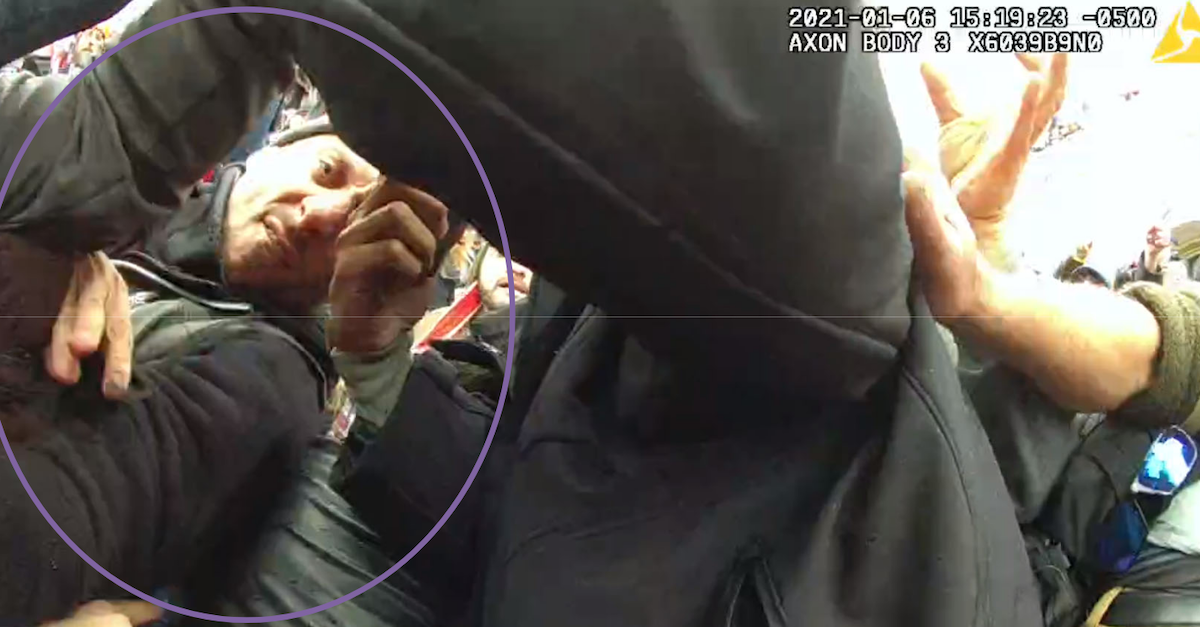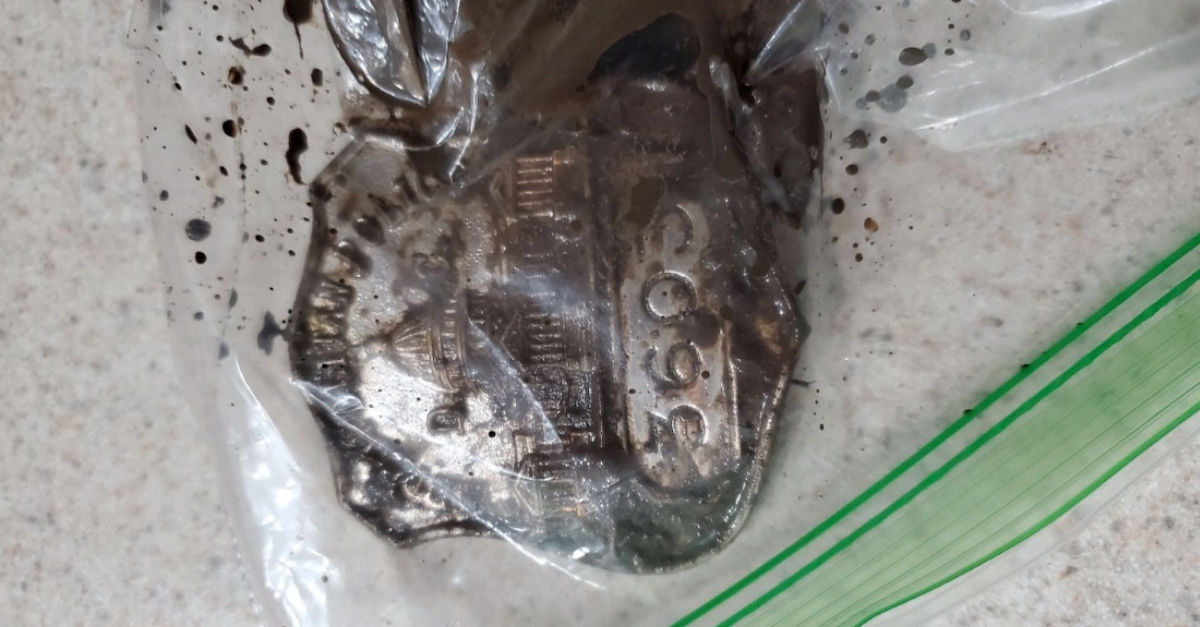
The Jan. 6 rioter accused of assaulting Metropolitan Police Officer Michael Fanone and burying his badge in his backyard can await trial at home with his family, but he can’t watch any political talk shows. That ruling followed revelations that the alleged assailant got fired up before the siege of the Capitol from watching Fox News.
U.S. District Judge Amy Berman Jackson on Tuesday ordered Thomas Sibick to be released to the custody of his parents in upstate New York, but with some conditions—including not watching any political television shows, on any channel.
According to the terms of release, Sibick must stay at his parents’ house around the clock, although he is allowed to leave to attend religious services with his parents.
Jackson’s order prohibiting Sibick from watching political talk shows came after an exchange with Sibick’s lawyer, Stephen Brennwald, in which she asked him where Sibick had gotten the information that ultimately led to him joining the Jan. 6 mob.
“He came here, fired up about a stolen election,” Jackson said. “Where was he getting his information? Facebook, Twitter, just watching the news?”
Brennwald, after consulting with Sibick, said that his client’s response surprised him.
“I thought it might have been OANN or Newsmax, but it wasn’t,” Brennwald said. “It was Fox News.”
“Wow,” Jackson responded.
“He was literally watching Fox News and in a manic phase that day, over a period of days,” Brennwald added.
Sibick had previously been denied bond since March, when he was initially detained. In April, Sibick and two others were indicted for allegedly participating in the brutal assault of Officer Fanone, who was beaten, Tasered, and robbed of his badge and radio by a pro-Trump mob on Jan. 6. The indictment alleges that Sibick was the one who stole the badge and buried it in his backyard. Court papers show the muddied badge after it was dug up and retrieved.

Federal prosecutors argued that the information Sibick presented wasn’t anything new, and that it wasn’t relevant enough to require a reconsideration of his bond status.
Regarding letters Sibick had submitted from various community members, Assistant U.S. Attorney Cara Anne Gardner said that Sibick could have submitted them at any time.
“It was information known to the defendant, and under his control, so it’s not new information,” Gardner said.
However, Jackson felt a new mental health diagnosis, along with Sibick’s decision to self-isolate in prison in order stay away from other Jan. 6 defendants, showed that Sibick deserved a second chance.
“I’m very glad to hear that the defendant thinks with the appropriate diagnosis, he has a handle on it now, on this new approach and new diagnosis,” Jackson said.
“It doesn’t mean I can say ‘he’s a new person, he’s fixed now,’ but at least you know the road you’re on,” she added, addressing Sibick directly. “It sounds like you’re committed to it.”
The details of Sibick’s new diagnosis were unclear, as they were filed under seal.
Brennwald also said Sibick’s “political thought process” has changed, and described his efforts to avoid the “cult-like” actions of other Jan. 6 defendants in the D.C. Correctional Treatment Facility (CTF).
“I think the court may know this but every night at 9:00 p.m., the folks there stand up and sing the Star-Spangled Banner,” Brennwald said. “I was on the phone with [Sibick] a month ago and we talked, and in the middle of our talk he said ‘I have to put the phone down, I’ll be right back. They’ll be angry of I don’t go over there.'”
“It was literally this herd mentality,” Brennwald added. “They’re literally singing, most of them off-key, literally singing the song, almost cult-like. It was pretty scary actually.”
Brennwald said that Sibick had requested to be put in isolation—known as “the hole”—in order to avoid dealing with these other inmates.
“His biggest fear is, ‘If I don’t get out, what do I do?’ He’s in a hole. He shouldn’t have to be in a hole because he’s trying to avoid a radical unit,” Brennwald said.
Jackson noted she had not previously seen comments like those about Sibick from guards at CTF.
“They tell us something about the defendant that we didn’t know before,” she said. “This is especially true given the toxic environment and pressure this defendant has had to resist, to be someone to gain the trust and support of jail officials. He’s not just asking me to take his word for it, he’s shown me by his actions, his choice to isolate himself and endure more harsh conditions he would be exposed to, [in order to] separate himself from the Jan. 6 defendants.”
Jackson added that Sibick’s actions “certainly raise serious questions” about how the Jan. 6 defendants are housed together.
Jackson asked Sibick’s father, Eugene Sibick, whether he was prepared to take responsibility for Sibick sticking to the conditions of his release.
“I understand and accept [that responsibility],” he told the judge.
“It has to be a calm environment,” Jackson told him.
“I’m sorry,” an emotional Eugene said through audible sobs. “I’ll do anything I have to do.”
Toward the end of the hearing, Jackson spoke directly to Sibick, saying that although she thinks he deserves the benefit of the doubt, he must not violate any of the conditions of his release.
“There will only be one chance,” Jackson said. “If you violate my conditions, it will indicate my trust was misplaced.”
Jackson, appointed to the bench by Barack Obama in 2011, oversaw the cases of Donald Trump associates Paul Manafort and Roger Stone, both of which resulted in convictions. Trump notably commuted Stone’s sentence and pardoned Manafort.
[Image via U.S. Dept. of Justice filing]